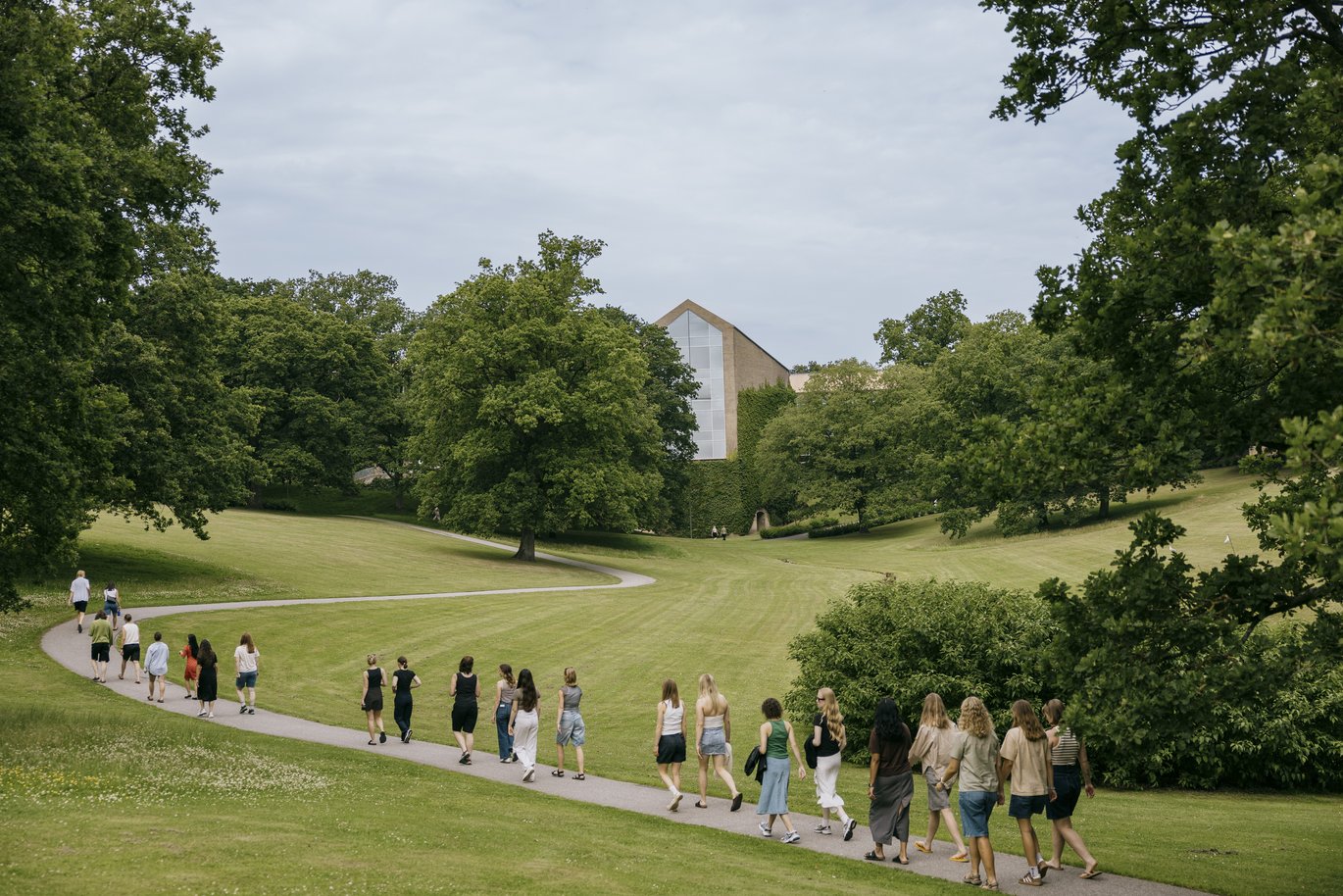Number of applications to AU increases by 7 per cent compared to last year
7 per cent more applicants than last year have applied for admission to a degree programme at Aarhus University, and the number of applicants who have listed an AU programme as their first priority has also increased by 6 per cent. This is shown in the final tally, released after the application deadline on Saturday 5 July.

UPDATE 8 July, 13:49: Due to an error in the report from KOT, which the article was based on, both the headline and the body text have now been corrected. There is NOT a 12 percent increase in the total number of applications, but rather a 7 percent increase. The same applies to the number of first-priority applications, where the increase is 6 percent and not 12 percent, as initially stated in the article. Omnibus apologises for the error.
UPDATE 8 July, 10:50: The article has been updated with the final application figures for 2025, compiled on 8 July
Interest in studying at AU is on the rise. The total number of applications to AU degree programmes has increased by 7 per cent compared to last year, and the number of first-priority applications has likewise gone up by 6 per cent. According to the final application figures for 2025, Aarhus University has received a total of 31,024 applications, of which 11,736 are from applicants who listed an AU programme as their first choice.
High interest in new English-language programmes
First-priority applications to programmes at the Faculty of Natural Sciences have increased by 62 per cent compared to 2024. Last year, 821 applicants listed a Natural Sciences programme as their first choice; this year, the number has grown to 1,326. The significant increase is mainly due to international interest in the faculty’s three new English-language IT programmes: Computer Science, Data Science and IT Product Development. The Computer Science programme in particular has proved popular, receiving 787 applications - 358 of which listed it as their first priority.
In a Danish post on LinkedIn, Pro-rector Berit Eika expressed her satisfaction with the growing number of applications to the new programmes.
“This is an almost unprecedented increase in our world, and the rise is primarily due to the programmes attracting many applicants from other EU countries,” Berit Eika writes.
Strong international interest had already become apparent back in March, when Omnibus reported high numbers of quota 2 applications to the new programmes.
However, the pro-rector also pointed out that the new programmes can't accommodate the high level of demand, as the number of students AU may admit is capped by political agreement. If Natural Sciences admits more than the allocated 75 students, the faculty will have to reduce intake in other programmes.
“The three programmes offer a total of 75 places, so we’ll have to turn away many highly qualified applicants,” Berit Eika writes.
“We could admit more students, but that would require closing even more study places in other subject areas than we already have in recent years,” she adds.
Natural Sciences will close 51 student places but won’t face academic consequences, says dean
Drop in applications to language programmes continues – minister expresses concern
Aarhus BSS has seen a 5 per cent increase in first-priority applications. Meanwhile, the faculties of Health and Technical Sciences have seen declines of 1 and 2 per cent respectively, and Arts has experienced a 3 per cent drop in first-priority applications. The decline in applications to humanities programmes is a broader trend that extends beyond AU. In particular, the number of applicants to language programmes continues to fall, prompting concern from Minister for Higher Education and Science Christina Egelund (Moderates).
In a press release from the Ministry of Higher Education and Science in Danish, the minister expresses her concern over the declining interest in language studies.
“It worries me that applications to language programmes are falling from an already low level—especially in a new geopolitical reality where we need to improve, not diminish, our ability to understand one another,” she states.
Nationwide, a total of 61 applicants have applied to general French and German programmes—a 13 per cent decrease, according to the ministry. At AU, the French Language, Literature and Culture programme has received 31 applications, of which 4 listed it as their first priority. The German Language, Literature and Culture programme has received 54 applications, with 14 listing it as their first priority. The International Business Communication in French programme has received 26 applications, including 11 first-priority applications. International Business Communication in German has received 43 applications, with 17 listed as first priority.
Applicants will receive their admission offers from Aarhus University on 28 July.
This text is machine translated and post-edited by Cecillia Jensen

